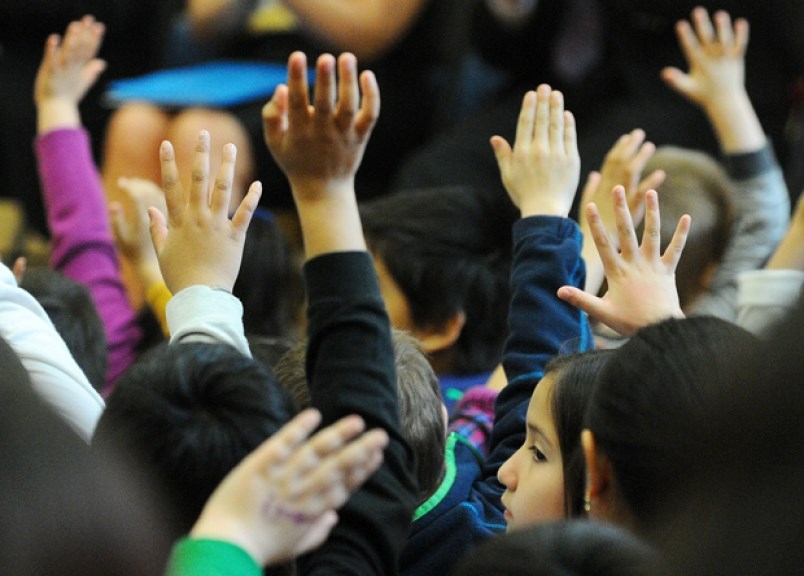The North Shore’s medical health officer Dr. Mark Lysyshyn sought to reassure parents and teachers on Thursday that the province’s plan for kids to go back to school next week is safe based on medical science.
“In general we think the school environment is a safe environment, and we think it is safe for all kids to return to school. And with the COVID safety plans that are in place we think the school is actually a lower risk environment than many other parts in the community,” said Lysyshyn, who is also deputy chief medical health officer for Vancouver Coastal Health.
Why masks aren’t mandatory in schools, what kind of physical distancing will be expected, and should kids have their temperatures taken or be tested for COVID-19 were just a few of the questions Lysyshyn answered from the public about back-to-school plans during a Facebook Live session.
Lysyshyn said masks aren’t being made mandatory in schools and strict two-metre distancing isn’t being put in place in schools because what’s needed in uncontrolled public settings is very different from a controlled classroom environment.
“The school environment is actually quite a safe environment, compared to some uncontrolled environments in public,” said Lysyshyn. So while masks have been recommended for some public spaces, “The people in your learning corridor in your class are not strangers. They are people that you're seeing on a regular basis,” said Lysyshyn.
When people are together regularly, they end up touching many of the same surfaces and being exposed to the same viruses anyway over time, said Lysyshyn.
Many people have trouble speaking while wearing masks, have trouble hearing other people speak through them and end up touching their faces more while wearing them, he said.
People also tend to reuse masks, which can actually increase the risk of transmission, rather than lower it, he said.
“We don’t think they are a very useful intervention in a classroom setting.”
Children and teachers will still be able to wear a mask if they choose to, he said.
In terms of physical distancing in the classroom, very young children will not be expected to practice it, said Lysyshyn.
Older children will be instructed on how to keep further apart.
But in terms of maintaining a strict two-metre distance, Lysyshyn said those guidelines are intended for situations where people who don’t see each other regularly encounter each other in public, not a classroom where the same students will be every day. “Those are two very different settings,” he said.
“If you’re spending a lot of time in the same environment with the same people regularly, whether you're physically distant is actually not that relevant.”
Grouping children into learning “cohorts” is a system that will help health officials quickly contact anyone who has come into contact with a student or teacher who comes down with the virus and limit exposure, said Lysyshyn.
Public health officials would decide who needs to be notified and who needs to stay home and self-isolate, he said.
It’s the same process that’s been happening in daycare settings over the summer, he added. “We haven’t actually had a lot of cases or clusters associated with daycares but occasionally we do have a case.”
Lysyshyn warned that when cold and flu season starts, kids who have symptoms will have to get tested for COVID-19 to rule it out.
Some kids may end up getting tested several times over the school year, he said.
Currently, there hasn’t been an ability to do rapid testing on kids under 12 years old, he said, but that will soon change to allow rapid testing of all kids over four.
Vancouver Coastal Health is also piloting new testing methods that use saliva, which will be easier to administer to kids than the current nasal swab.
Lysyshyn said health officials don’t recommend taking temperatures to screen for COVID-19. Many people who have COVID-19 never develop a fever, he said.
Health officials also don’t recommend testing of all students and teachers, he said, because testing of people who don’t have symptoms is unreliable. Many positive results in those circumstances are likely to be false positives, he said. And those who test negative could still go on to develop COVID-19.
Lysyshyn said in general children get very mild cases of COVID-19, similar to seasonal colds and flu, so “if it was acceptable to be in school before COVID-19, it should still be acceptable to be in school in this context,” he said.
“This is going to affect us for years and we have to keep running society while it happens.”



